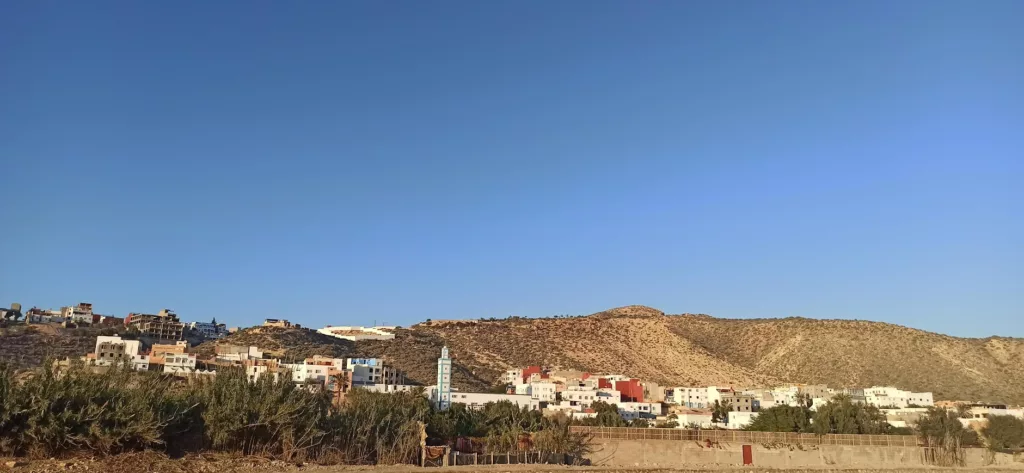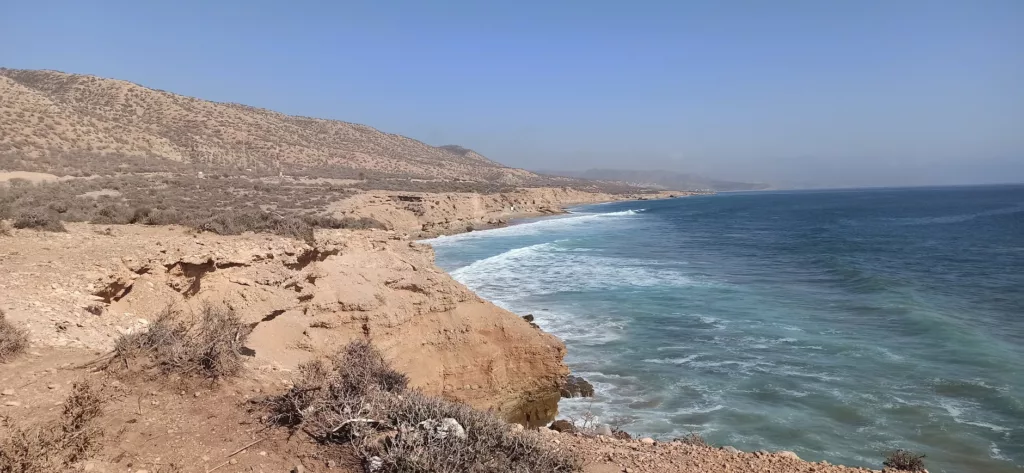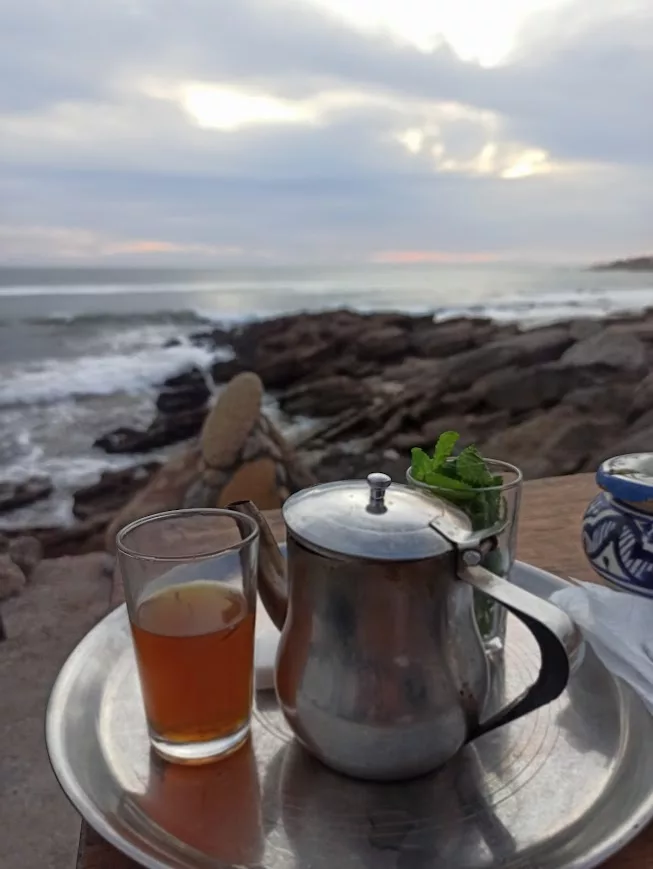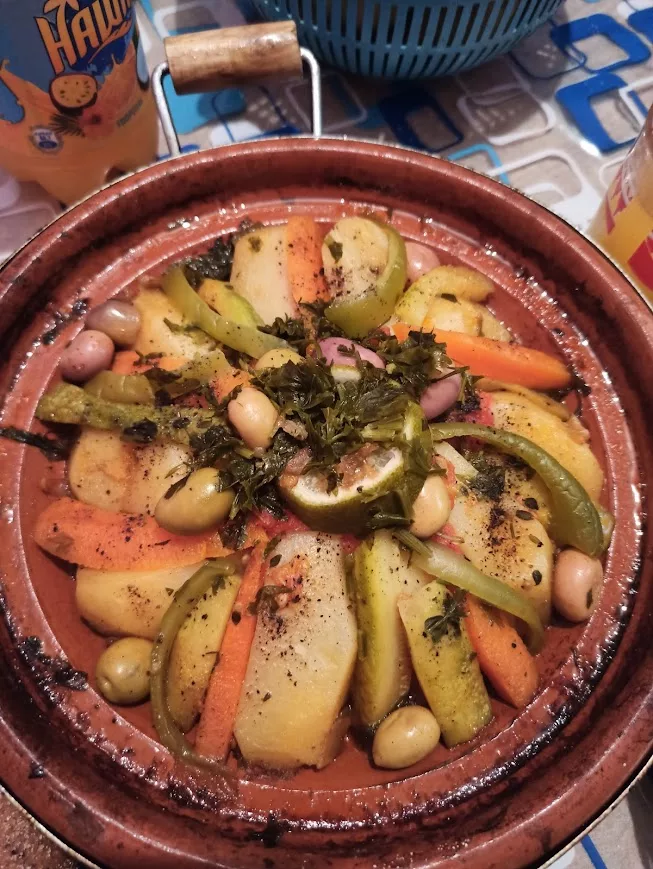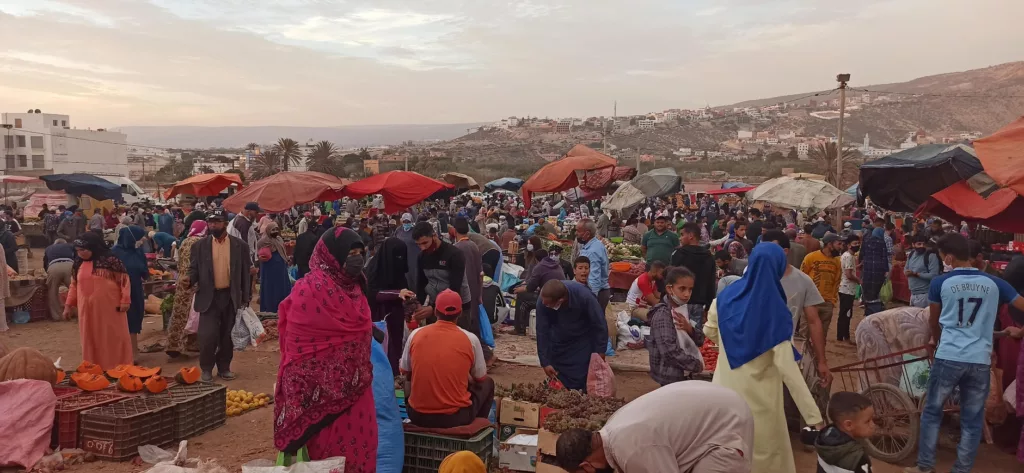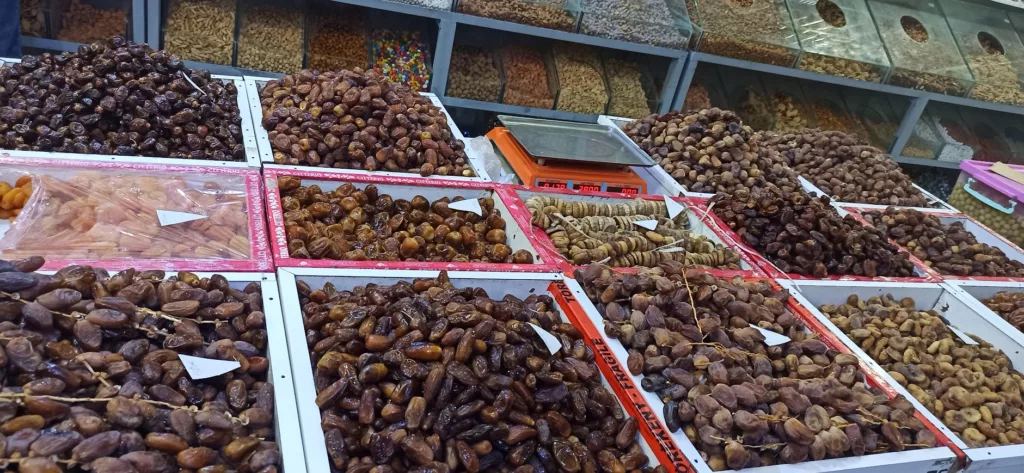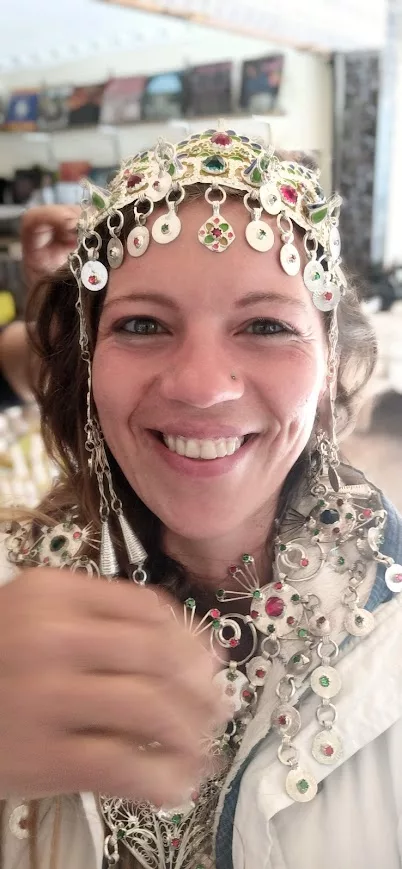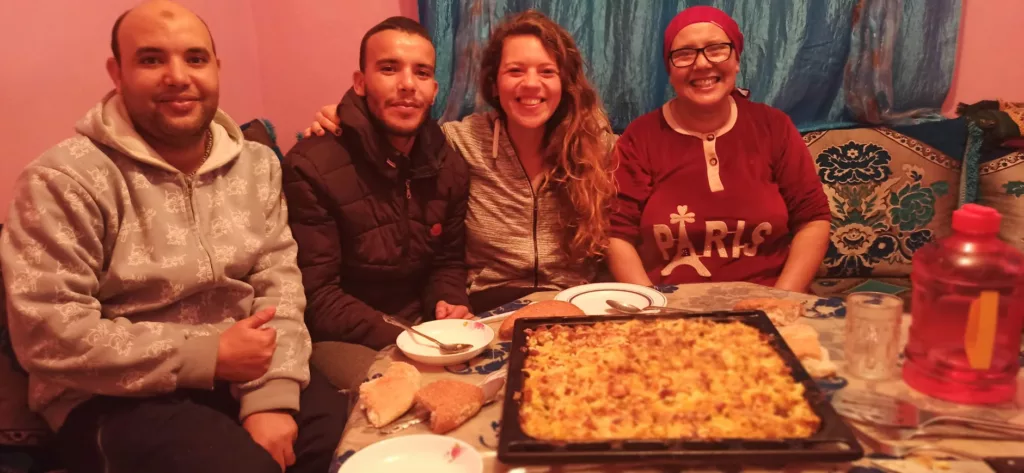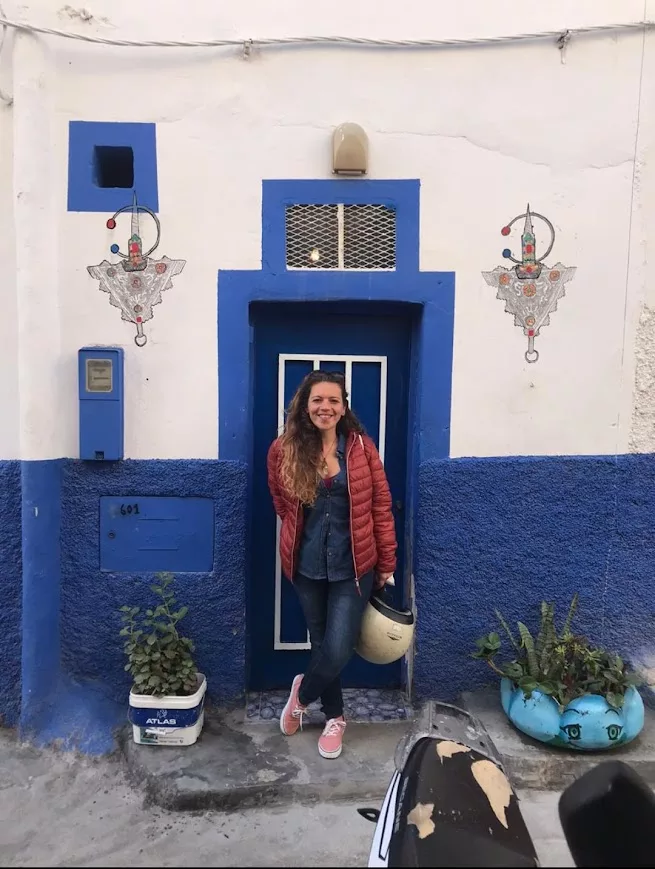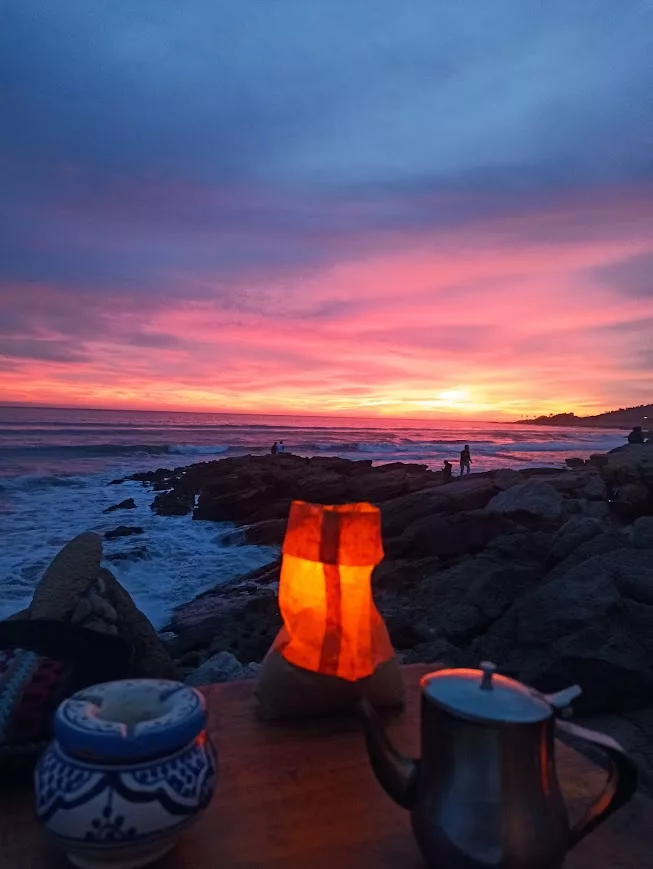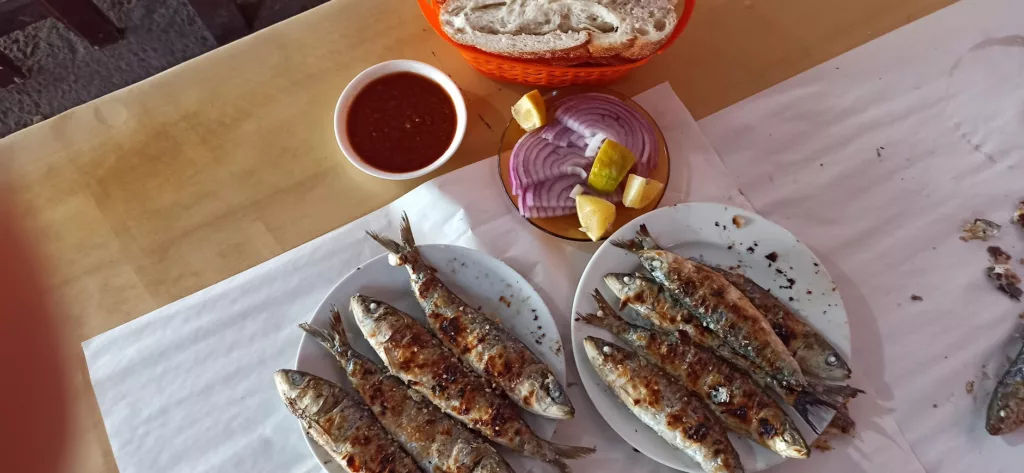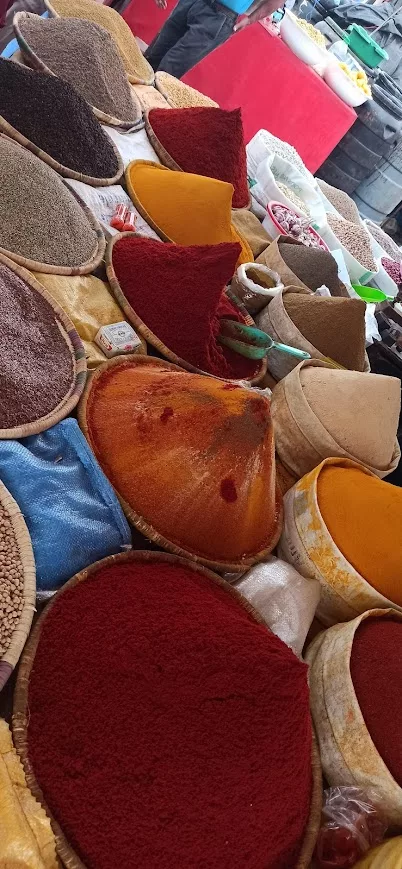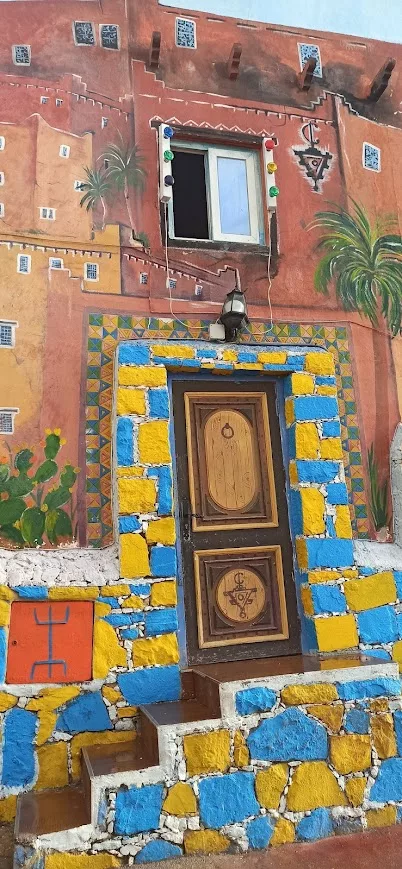A Journey to the Soul of the Berbers – Morocco
I landed in Marrakesh under an intense heat that seemed to wrap itself around every breath.
I always bring a book with me to mark each journey, like an emotional trail, much like the music of the countries I visit. This time, it was As a Man Thinketh by James Allen, a quiet guide for introspection.
The taxi took me to the buses bound for Agadir.
From there, I headed to Taghazout, a small coastal village brimming with the energy of surfing and tourism. Vibrant rugs were unfurled along the streets, while terraces buzzed with the harmony of yoga and breathwork. Shops displayed Moroccan ceramics, and the vendors, with their shrewd smiles, bartered prices as part of the ritual.
My favorite breakfast quickly became a cherished habit: sweet and creamy amlou served with fresh Moroccan bread, paired with mint tea whose aroma seemed to warm not just the body but also the soul.
I chose Taghazout for a deeper purpose: to immerse myself in Berber culture.
For a month, I lived with Radhija’s family in a simple yet welcoming three-story house. Radhija, or Ina as I came to call her (mother, in Berber), embraced me as if I were one of her own.
I woke to the sound of the Azan, the call to prayer, echoing through the village at six in the morning. It was impossible not to feel the spirituality pulsating around me. I spent hours talking with Simo, the middle son and a surf instructor. He spoke passionately about Islam, the Quran, and its teachings.
We walked miles together, crossing breathtaking landscapes as he shared stories and traditions.
I remember one morning when we strolled along the beach. The warm water lapped at my feet while vendors passed by, balancing trays of mint tea and traditional sweets. Decorated camels, ready for photos, paraded around us, while stray dogs played freely.
The late afternoons were magical. We sat at seaside cafés, sipping mint tea and listening to Berber tales. One day, Ina gifted me a beautiful pink jelaba, the traditional Arabic robe. Wearing it, I felt connected to the land, enveloped by its colors and the generosity of its people.
Evenings were family time. We gathered around a small round table, sharing a large tajine. Before each meal, we said “Bsaha” or “Bismillah,” giving thanks to God for the abundance. There were no sofas, only large golden cushions where we made ourselves comfortable.
On a memorable day, Simo and I rode a motorbike into the mountains with a bag of dates bought from the local market. The landscape was breathtaking: olive and argan trees painted the horizon. We encountered the famous goats balancing in the trees, like magical guardians of Berber culture. In a modest shop, I bought pure argan oil. Its scent transported me straight to the roots of this ancient people.
The mountains held generations of memories. The Berbers, or Imazighen—”free men”—are the heart of the Maghreb. Among the winding roads and the Ouzoud waterfalls, I felt the energy of the land and a profound connection to nature and history.
Mustafa, the youngest son, dreamed of sharing his art with the world. He spent hours drawing, photographing, and creating. His passion was inspiring, and his 16,000 Instagram followers were just the beginning. He reminded me that our dreams are the fuel for the soul.
On my final night, the rooftop terrace became the stage for a farewell celebration. Mustafa and Ina grilled the best sardines I’ve ever tasted, and we shared laughter, stories, and tea. When dawn arrived and it was time to leave, we embraced with love. I felt a tear roll down, carrying the longing I already knew I’d feel.
I left Taghazout with more than memories: I carried with me the music of the Berbers, playing their unique instruments like the Oud guitar and the Guembri, crafted from camel or goat skin.
The melodies of the streets and the sound of the winds crossing the mountains stayed with me. I carried the soul of a culture that welcomed me as one of their own.
Until we meet again, my Berber family. I carry you with me, always in my heart.
